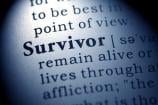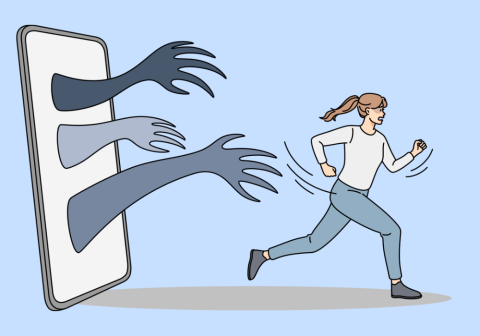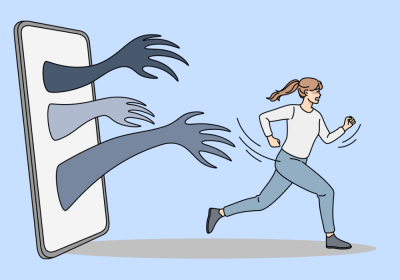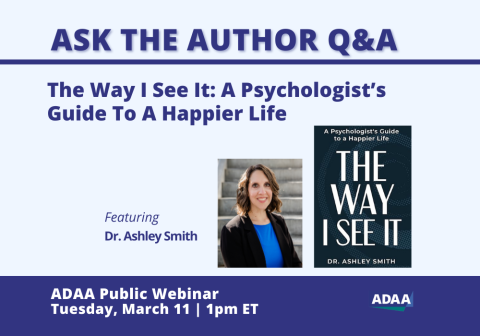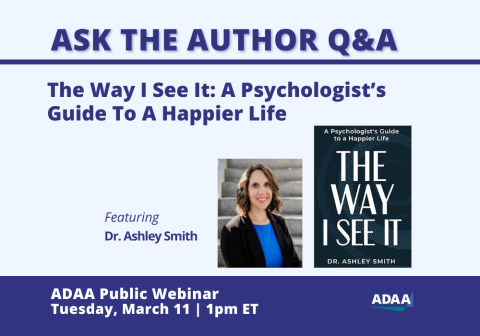What I Learned from Working in a Behavioral Health Hospital
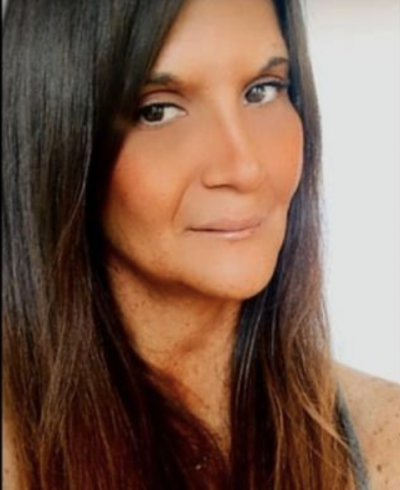 I started working at a predominant Florida behavioral health facility in 2017. I was excited and a bit nervous. Nonetheless, I was filled with a passion and desire to help patients. Since the age of 15, I had a growing interest in mental health and badly wanted to have a career in it. I thought that a position as a mental health technician was a great way to enter into the field. I worked at this facility for a little over 3 years. I learned a lot, I saw a lot, and I cried a lot.
I encountered some of the kindest souls I have ever met. I witnessed those in anguish, comforting one another. I heard stories of patients' lives, some made me cry, some made me angry for them, and some I will remember for the rest of my life. I saw humans at their most vulnerable. It was the most humbling time of my life. Knowing that only grace and circumstance separated me and the patient. The shifts were challenging, some patients were challenging. I had to stop fights, both verbal and physical. I was kicked in the chest my first month working there. I was cursed out. I've had food thrown at me. I've had a used diaper thrown at me. It was the hardest and most rewarding job I have ever had.
There were 3 units. One was the geriatric adult unit, one was the acute adult unit and the other was the pediatric unit. Working in Pediatrics was too difficult and heartbreaking. Most children there were wards of the state and hearing their backstories tore a hole in my heart that's still there to this day. I normally worked in the geriatric adult unit. In that unit we had patients that were dealing with both mental and physical illnesses. I liked that unit. I got on well with the older patients, probably because I pictured the females as my mother and the males as my father. I would enjoy hearing stories of their youth or their grandchildren, their children, and their spouses, they shared the story of their lives and I loved every minute of it. Talking with the patients, and spending time with them was my favorite part. I hated the clinical side of my job. It felt too cold. I remember this one senior gentleman, he had Alzheimer's disease and had lost his ability to walk and talk. He was from the islands so during one of my shifts while I was sitting with him I pulled my phone out and put on some island music and suddenly this man started bobbing his head and smiling and swaying in his wheelchair. His whole face lit up. It's moments like those that I cherish.
I found that treating the person, talking to the person, seeing the person was the best and most effective way to deliver care. They were people, not merely patients. They were people in anguish, people who have been abandoned by family and other loved ones, people that were homeless, people that tried to take their life but were (thankfully) unsuccessful, and people battling addiction; these were people who needed our care and who needed our help.
More than half of the patients admitted to the behavioral health facility I worked at had a criminal history, usually an extensive one. These weren’t bad people, they were people that were hurting, people who were gravely affected by their environmental conditions, and people who would have benefited from receiving proper mental health care much earlier in their life but did not have the resources readily available to them.
One problem we’re seeing, along with other states, is the growing number of individuals with serious mental illness that are being incarcerated. According to data collected by Psycom, more than 2 million people in the United States with serious mental illness are arrested annually and over 550,000 people with serious mental illness are sitting in jail on any given day. A survey conducted by Prison Policy Initiative found that 66% of people incarcerated in federal prison reported not receiving any mental health care while incarcerated. In 2021 The Tampa Bay Times covered a story about a reform bill that would broaden the criteria for involuntarily holding someone for mental-health reasons. In this story it was stated that the state of Florida spends at least $233 million annually, jailing those with mental illnesses and $368 million housing them in prisons. These numbers are astronomical and unacceptable. When prison has become the most populated “psychiatric facility” THAT is a problem. I am not asking for these individuals who suffer with mental illness to be pardoned for the crimes they have committed. What I am trying to shine light on is that, without adequate mental health care available to them, these individuals are more likely to re-offend than those who do not suffer from mental illness.
Of course, they are not the only ones who would have benefited from earlier intervention. Other patients were readmitted multiple times. Either due to non-compliance or due to environmental and economical challenges that interfered with their chances of recovery. I firmly believe with the right assistance at their disposal, these hindrances can be trounced. With the amount of money the United States spends annually housing those with mental illnesses in prison, it could instead be utilized to fund better resources and make them more available to individuals struggling to find access to therapy or medication management.
Placing someone under an involuntary hold due to mental health concerns is called a Baker Act in the state of Florida. The Ledger ran a story in 2021 that publicized how Law enforcement were Baker Acting individuals at an alarming rate. The story printed that from 2001 to 2002, 95,574 people were placed under a Baker Act while from 2018 to 2019 it jumped to 210,992. In 2019, the CDC reported that the number of people who died by suicide in the state of Florida was 3,465. If you’re like me, reading these numbers was both disheartening and distressing. While Florida’s population has climbed in recent years, I am still troubled by the rise of involuntary hospitalizations and the number of completed suicides. I can’t help but wonder, what is going on in my state?
My time at the behavioral health facility taught me a lot of things. Most importantly, it showed me how we need to value every aspect of someone's humanity. I also learned that the mental health care system is broken and the ones who can do something about it are not doing anything about it. That's what really angers me. What will it take? How much longer will society criminalize the mentally ill? How many more people have to lose their lives to mental illness before someone recognizes something needs to change and actively works to change it.
I started working at a predominant Florida behavioral health facility in 2017. I was excited and a bit nervous. Nonetheless, I was filled with a passion and desire to help patients. Since the age of 15, I had a growing interest in mental health and badly wanted to have a career in it. I thought that a position as a mental health technician was a great way to enter into the field. I worked at this facility for a little over 3 years. I learned a lot, I saw a lot, and I cried a lot.
I encountered some of the kindest souls I have ever met. I witnessed those in anguish, comforting one another. I heard stories of patients' lives, some made me cry, some made me angry for them, and some I will remember for the rest of my life. I saw humans at their most vulnerable. It was the most humbling time of my life. Knowing that only grace and circumstance separated me and the patient. The shifts were challenging, some patients were challenging. I had to stop fights, both verbal and physical. I was kicked in the chest my first month working there. I was cursed out. I've had food thrown at me. I've had a used diaper thrown at me. It was the hardest and most rewarding job I have ever had.
There were 3 units. One was the geriatric adult unit, one was the acute adult unit and the other was the pediatric unit. Working in Pediatrics was too difficult and heartbreaking. Most children there were wards of the state and hearing their backstories tore a hole in my heart that's still there to this day. I normally worked in the geriatric adult unit. In that unit we had patients that were dealing with both mental and physical illnesses. I liked that unit. I got on well with the older patients, probably because I pictured the females as my mother and the males as my father. I would enjoy hearing stories of their youth or their grandchildren, their children, and their spouses, they shared the story of their lives and I loved every minute of it. Talking with the patients, and spending time with them was my favorite part. I hated the clinical side of my job. It felt too cold. I remember this one senior gentleman, he had Alzheimer's disease and had lost his ability to walk and talk. He was from the islands so during one of my shifts while I was sitting with him I pulled my phone out and put on some island music and suddenly this man started bobbing his head and smiling and swaying in his wheelchair. His whole face lit up. It's moments like those that I cherish.
I found that treating the person, talking to the person, seeing the person was the best and most effective way to deliver care. They were people, not merely patients. They were people in anguish, people who have been abandoned by family and other loved ones, people that were homeless, people that tried to take their life but were (thankfully) unsuccessful, and people battling addiction; these were people who needed our care and who needed our help.
More than half of the patients admitted to the behavioral health facility I worked at had a criminal history, usually an extensive one. These weren’t bad people, they were people that were hurting, people who were gravely affected by their environmental conditions, and people who would have benefited from receiving proper mental health care much earlier in their life but did not have the resources readily available to them.
One problem we’re seeing, along with other states, is the growing number of individuals with serious mental illness that are being incarcerated. According to data collected by Psycom, more than 2 million people in the United States with serious mental illness are arrested annually and over 550,000 people with serious mental illness are sitting in jail on any given day. A survey conducted by Prison Policy Initiative found that 66% of people incarcerated in federal prison reported not receiving any mental health care while incarcerated. In 2021 The Tampa Bay Times covered a story about a reform bill that would broaden the criteria for involuntarily holding someone for mental-health reasons. In this story it was stated that the state of Florida spends at least $233 million annually, jailing those with mental illnesses and $368 million housing them in prisons. These numbers are astronomical and unacceptable. When prison has become the most populated “psychiatric facility” THAT is a problem. I am not asking for these individuals who suffer with mental illness to be pardoned for the crimes they have committed. What I am trying to shine light on is that, without adequate mental health care available to them, these individuals are more likely to re-offend than those who do not suffer from mental illness.
Of course, they are not the only ones who would have benefited from earlier intervention. Other patients were readmitted multiple times. Either due to non-compliance or due to environmental and economical challenges that interfered with their chances of recovery. I firmly believe with the right assistance at their disposal, these hindrances can be trounced. With the amount of money the United States spends annually housing those with mental illnesses in prison, it could instead be utilized to fund better resources and make them more available to individuals struggling to find access to therapy or medication management.
Placing someone under an involuntary hold due to mental health concerns is called a Baker Act in the state of Florida. The Ledger ran a story in 2021 that publicized how Law enforcement were Baker Acting individuals at an alarming rate. The story printed that from 2001 to 2002, 95,574 people were placed under a Baker Act while from 2018 to 2019 it jumped to 210,992. In 2019, the CDC reported that the number of people who died by suicide in the state of Florida was 3,465. If you’re like me, reading these numbers was both disheartening and distressing. While Florida’s population has climbed in recent years, I am still troubled by the rise of involuntary hospitalizations and the number of completed suicides. I can’t help but wonder, what is going on in my state?
My time at the behavioral health facility taught me a lot of things. Most importantly, it showed me how we need to value every aspect of someone's humanity. I also learned that the mental health care system is broken and the ones who can do something about it are not doing anything about it. That's what really angers me. What will it take? How much longer will society criminalize the mentally ill? How many more people have to lose their lives to mental illness before someone recognizes something needs to change and actively works to change it.
I'd be lying if I said I didn't feel abandoned by the leaders of my state, by the leaders of this country. I want action. I want more funding. I want better resources. I want to be heard. I think we all want that. Someone to hear us. I wanted to share my story and experience on ADAA's platform because the personal stories I have read on this site have helped me through my own mental health struggles and my hope is to do the same with others who are struggling and bring attention to the growing mental health crisis our nation is facing.
I don't know about you, but I'm going hoarse from raising my voice for so long. I'll keep raising my voice though. I'll keep raising my voice until I see change. I will not stop raising my voice until our country's Mental Health Care is taken seriously.
Read these other stories by Dominque
Share Your Story and Voice and Help #breakthestigma Around Mental Health
Support ADAA's Mission - Every Gift Makes an Impact

